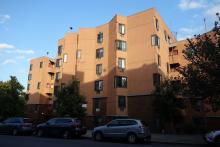Not too far away from Chattanooga, Tennessee, (home to the largest muni fiber network in the U.S.) lies Cleveland (Tennessee). Five prominent residents asked why they cannot get broadband:
The homeowners have discussed the problem with Charter Communications Director of Government Relations Nick Pavlis three times.
Pavlis said in a telephone interview it would cost the cable company $130,000 to run an underground cable 2 1/2 miles and “it’s just not a reasonable payback.”
He said the company spends $500 per house as a general rule, which gives them a 36-48 month return on investment.
Yet Charter has no problem lobbying the states to prohibit publicly owned networks. Tennessee probably has more fiber-to-the-home initiatives than any other state - perhaps it is time Cleveland looked into their own or cajoling a nearby network into expanding.







